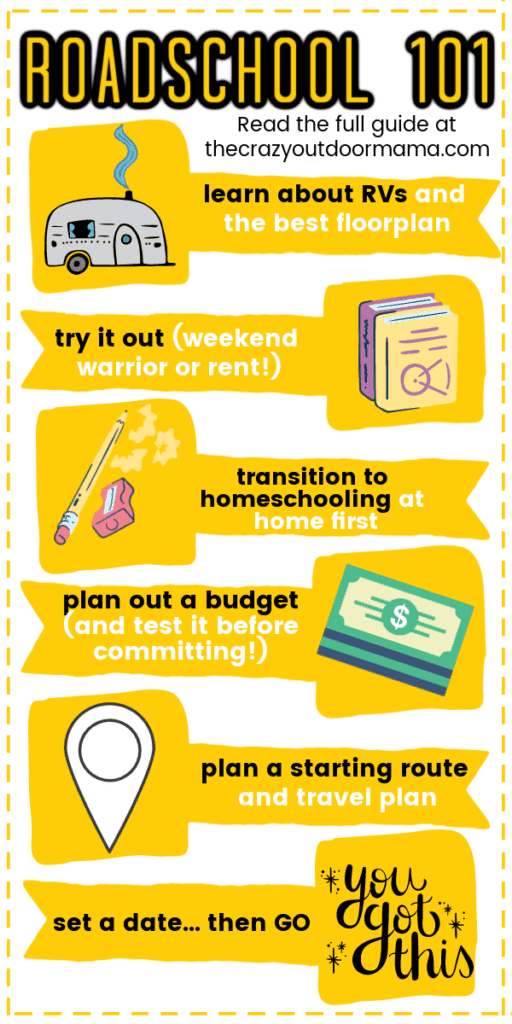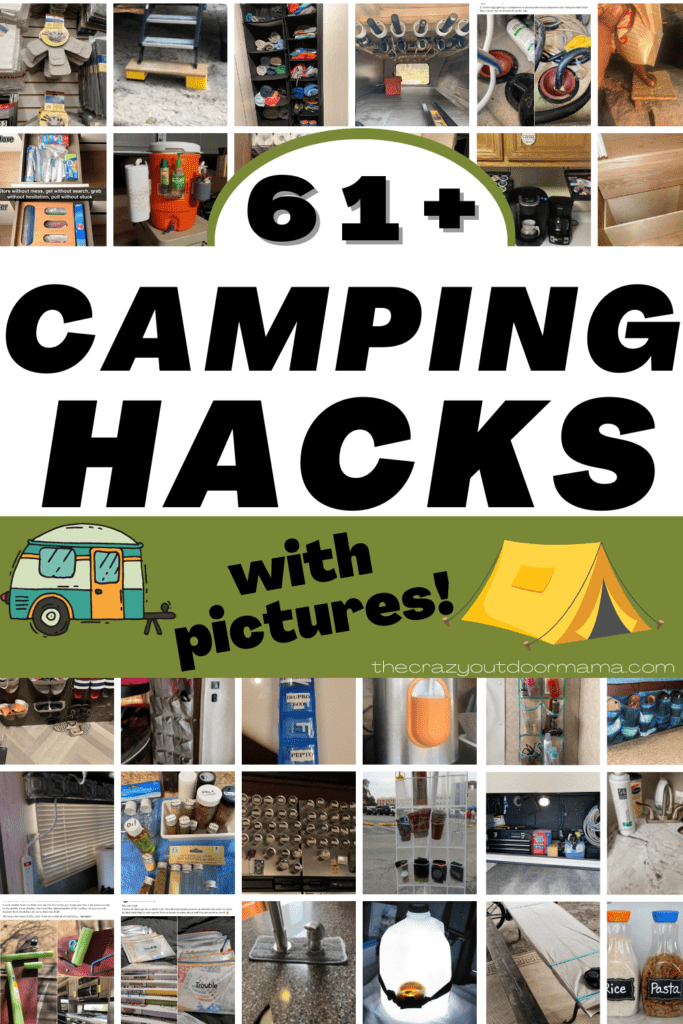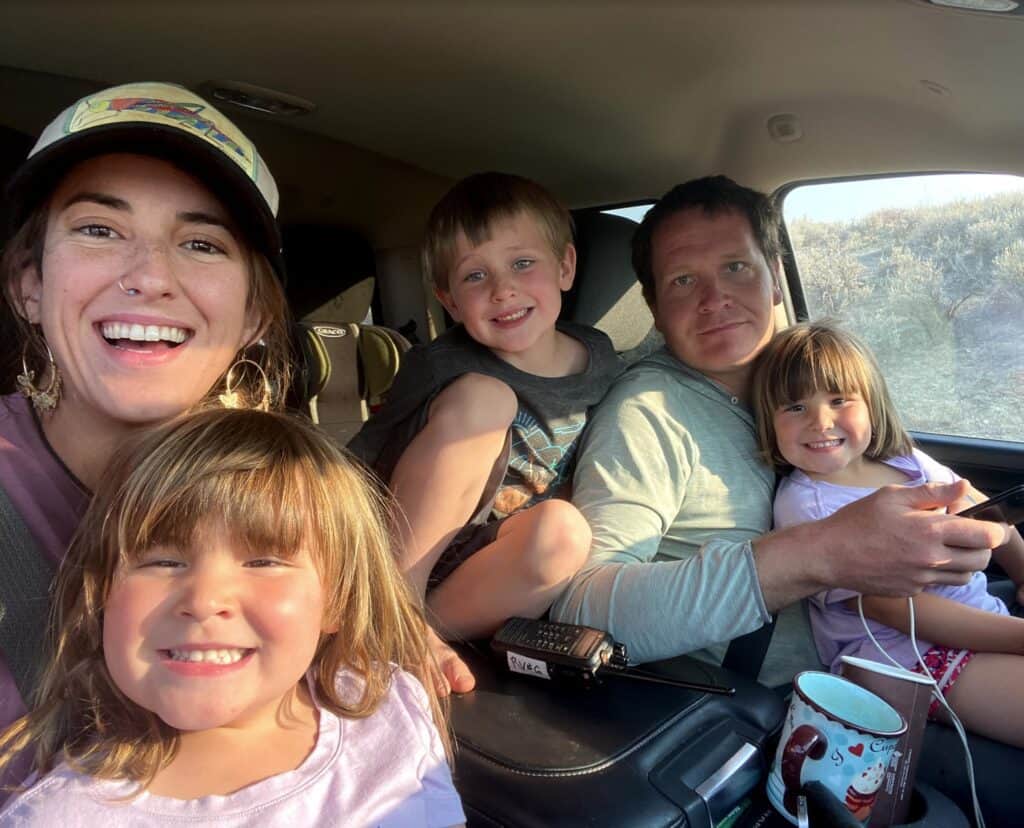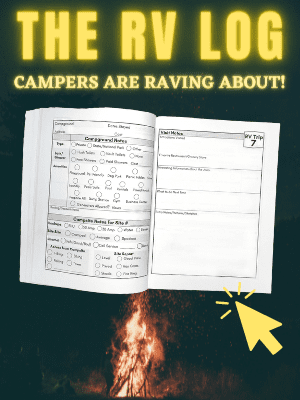- Top 5 Roadschooling Destinations in the Northeast and New England - September 2, 2021
- Top 5 Roadschooling Destinations in the Midwest - July 2, 2021
- Top 5 Roadschooling Destinations in the Southeast - June 21, 2021
On April 30, 2016 we handed over the keys to our last “sticks-and-bricks” home and began our roadschooling adventure.
Our kids were 6 and 4 at the time, and our youngest was due in September. We’d been dreaming of this kind of education for our kids for more than a decade – since long before our kids were even born. All these years later, we are still roadschooling and have no regrets about making this choice for our family.
Is it for everyone? Definitely not. Can anyone do it? Absolutely.
If you’re curious about this rapidly-growing phenomenon or exploring roadschooling as a lifestyle choice for your family, read on. I’d love to help you start your life on the road!
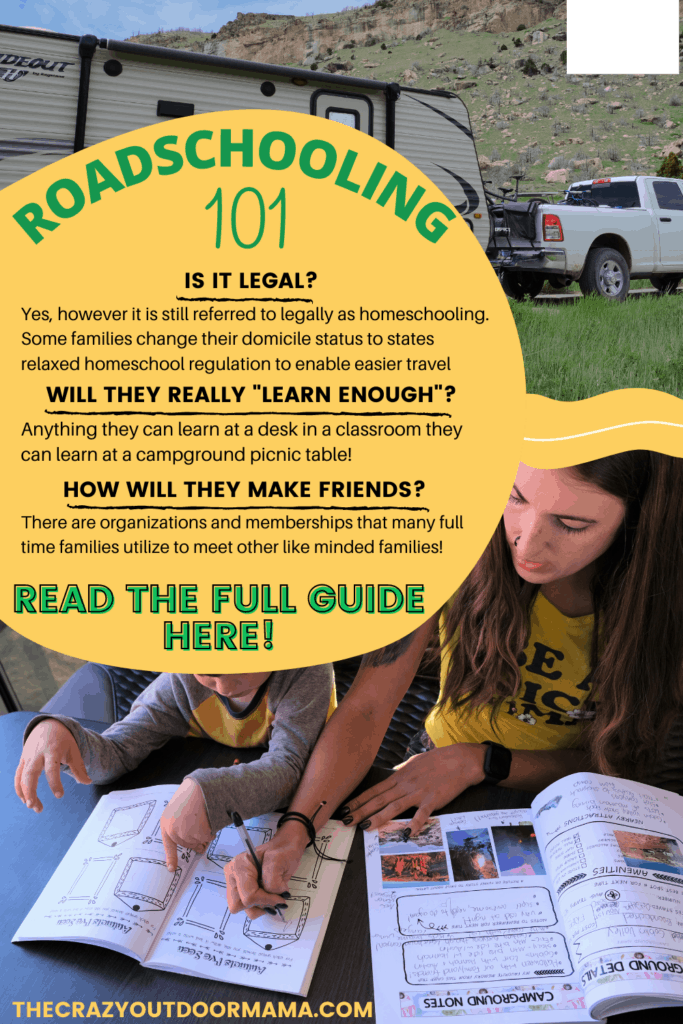
Table of Contents
What is Roadschooling?
Roadschool / rōd-skül /: (verb) To educate through extensive travel and varied experiences; to homeschool in the midst of full-time travel. See also: world-school
Roadschooling is exactly what the name implies: school on the road. Beyond that, it is difficult to define roadschooling because nearly all roadschooling families do it a little differently. The common thread is that travel is a key part of the educational experience. Most roadschooling families travel full-time. Typically, roadschooling involves living in an RV and traveling by road. Families who travel internationally and rely extensively on air travel will usually refer to their lifestyle as “world-schooling.”
Roadschooling recognizes the tremendous value in learning through firsthand experiences. Our kids didn’t just read a book about manatees, they put on snorkels and swam with them in Florida. They learned about the Declaration of Independence by visiting Independence Hall in Philadelphia. Zoology, history, ecology, geography, geology, archeology, and even literature are all absorbed differently thanks to in-person sensory experiences.
The opportunities are endless. Roadschooling is whatever you make of it, and it can be adapted to whatever best fits the needs and personalities of your family.

Is Roadschooling Legal?
“Roadschooling” is not a legally recognized term at this point. Most roadschooling families are considered homeschoolers, though there are some who enroll their kids in official state online schools while traveling.
This is a broad topic worthy of a deeper dive, but the short answer is that roadschooling families follow the laws for homeschooling in their state of residence (or domicile).
Education laws vary by state. Some states, such as Pennsylvania, New York, and Massachusetts, regulate homeschooling very strictly. Other states, including Texas, New Jersey, and Idaho have little or no regulation when it comes to homeschooling. Most states are somewhere in between. States that are highly regulated can make roadschooling difficult, since they often require you to appear in person for things like testing or portfolio evaluation.
Many roadschooling families choose to change their domicile state after they launch in order to be legal residents of a state with more relaxed homeschool regulation.
Other factors in choosing a new home state include ease of establishing residency, state income tax rates, and proximity to extended family. Texas, Florida, and South Dakota are all very popular states for families to choose. Our family chose to “move” to Texas. We use a mail service through Escapees, which gives us an address that can be used for domicile (in contrast to a PO box, which cannot.)
For more information about state-by-state homeschooling laws, the Home School Legal Defense Association (HSLDA) has some great resources.
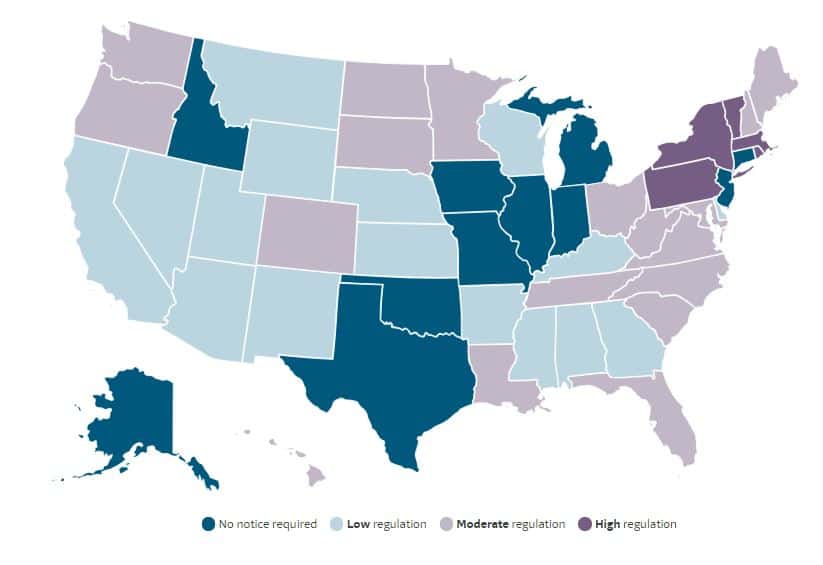
Full-time RVing with Kids
For a long time, the stereotypical full-time RVers were recently retired empty-nesters who left it all behind to travel the country. While these folks are still out there enjoying retirement, a new generation of RVers is questioning the narrative that full-time travel should be postponed until after the kids are grown and flown.
The RV industry – from designing more rigs with bunks, to campgrounds and RV parks relaxing age restrictions – recognizes that a new demographic is the fastest-growing group of full-timers: adults under 60 and their school-aged children.
Are there challenges to traveling full-time with kids? Of course.
There are challenges to raising kids in a cul-du-sac too. As with so many things in life, each family should weigh the advantages and disadvantages and decide what’s best for them. Just know that full-time RVing with kids is possible, and hundreds of families are thriving on the road right now.
We’ve heard all the questions. Isn’t life on the road hard on your kids? Don’t kids need stability and roots?
Here’s the interesting thing: our home may be on wheels, but it is definitely our home. When we close the door and pull the shades down at night, we are just as much at home whether we’re in a favorite campground or sleeping in a Walmart parking lot for the night. The kids sleep in their familiar beds surrounded by their things. The fact that the view out the window changes regularly is something that they think is fun.
We believe that stability can be found in people rather than places, and we want our kids to sink their roots in our family instead of any one physical place. If you spent a few minutes with our kids or any of their traveling friends, you’d see that it’s very possible for kids to thrive in this lifestyle.
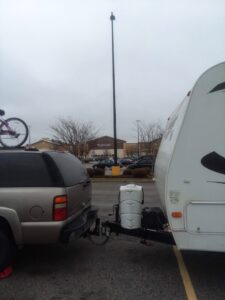
Can Kids Learn “Enough” through Roadschooling?
It makes sense that kids can get a deep grasp of geography or history through roadschooling, but many people wonder if roadschooling gives kids an adequate, well-rounded education.
I’m convinced that if you can learn it sitting at a desk in a classroom, then you can learn it just as well at a campground picnic table. Maybe even better.
Christine Lindstrom
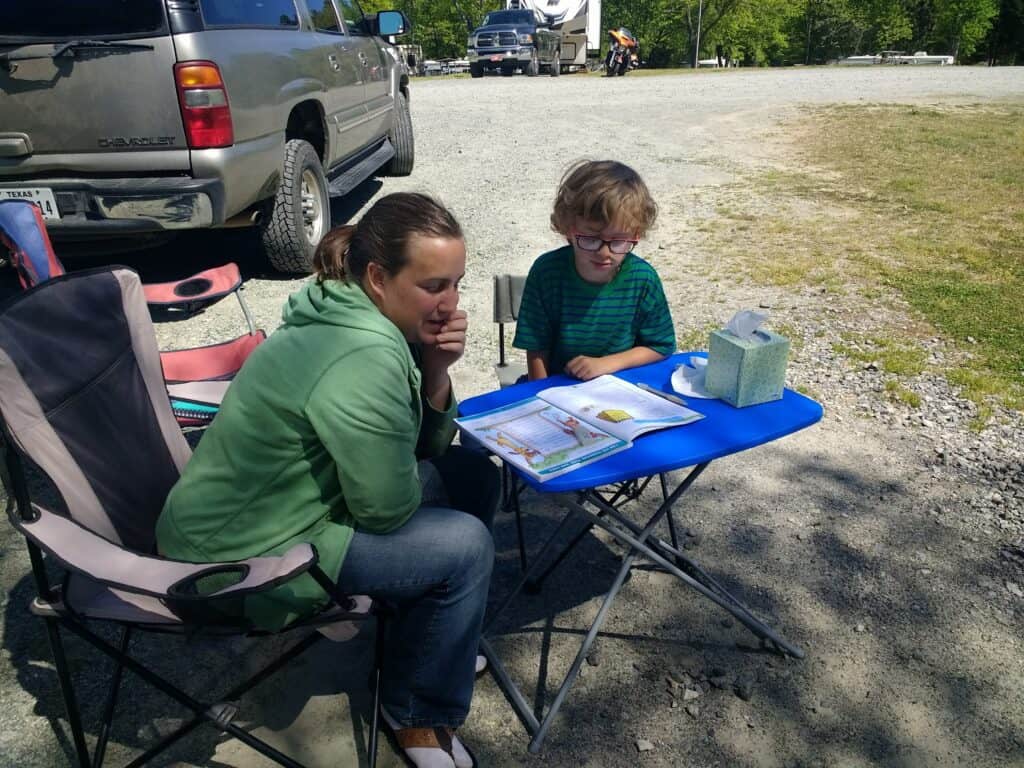
That said, there are some practical considerations that make roadschooling a little different than homeschooling.
Curriculum
This is a very individual choice for each family. Some roadschooling families choose the unschooling method, and therefore don’t follow a specific curriculum. Some families have to follow curriculum guidelines from their state of residence. There are families that choose a curriculum that reinforces their religious beliefs, and those that choose a specific educational style, such as Charlotte Mason or Montessori methods. Curriculum choices are as diverse as any group of homeschoolers.
The complicating factor is space and weight. If you have several children and each has a stack of heavy textbooks, workbooks, and other materials, it really adds up. Space and cargo weight are both limited in an RV, so this can be an issue.
We have chosen to use an online curriculum through MobyMax to form the basic structure of our roadschooling and to make sure that all our bases are covered. MobyMax is not primarily designed as a homeschool curriculum, but it has been working well for us for years.
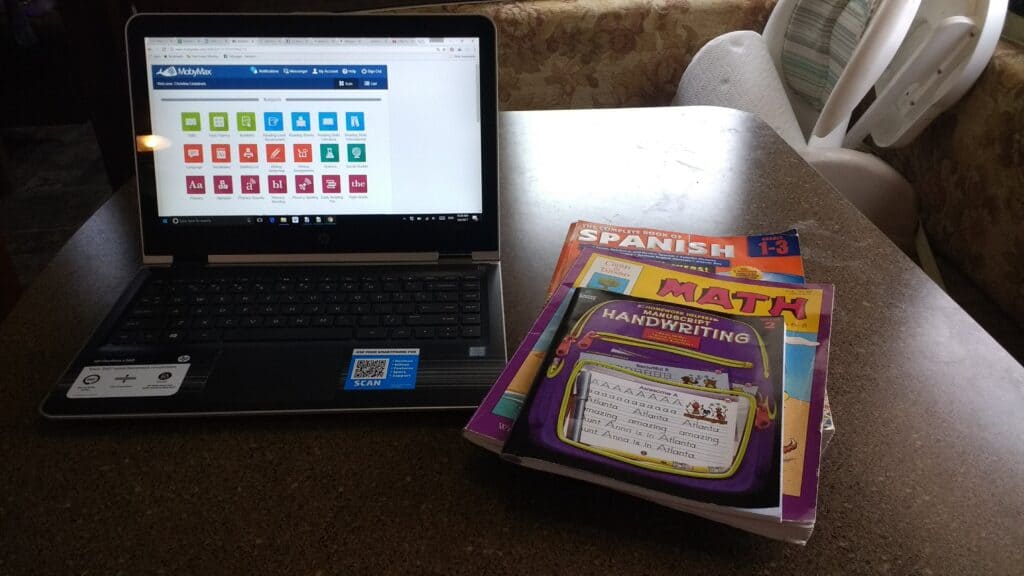
Textbooks
Use of textbooks is another personal choice, but it’s worth noting that most textbooks are designed for a classroom setting. They definitely have their uses but they also have their limitations. Considering how expensive they are and how much space they take up, many roadschooling families look for alternatives to textbooks.
Coordinating Travel and Curriculum
This is where the fullest benefits of roadschooling can be found, and it’s definitely worth doing a deeper dive into this topic. As a former classroom teacher, the possibility of coordinating travel and curriculum was what first drew me to roadschooling and it remains my favorite thing.
It doesn’t always work out exactly how I hope, but I put a lot of time into planning our travel according to the kids’ upcoming curriculum as well as rearranging their curriculum to better fit our travel plans. Is this the simplest way to do things? Maybe not, but doing things the easy way isn’t why we chose this lifestyle. For us, it’s worth the investment.
A great example of this was the year we studied the Oregon Trail and westward expansion. I rearranged their online curriculum so that both of my older kids were reading about it at the same time, even though they’re on different grade levels. I read the Little House series to them and we found other historical fiction novels related to the period. Then we hitched up our “wagon” (a.k.a. travel trailer) and followed the trail west. We stopped at Oregon Trail landmarks like Chimney Rock and Scotts Bluff. We visited the Guernsey Wagon Ruts, where so many wagons crossed the same place that the ruts from their wagon wheels are still there.
These are the kinds of educational opportunities that are available for roadschooling families.
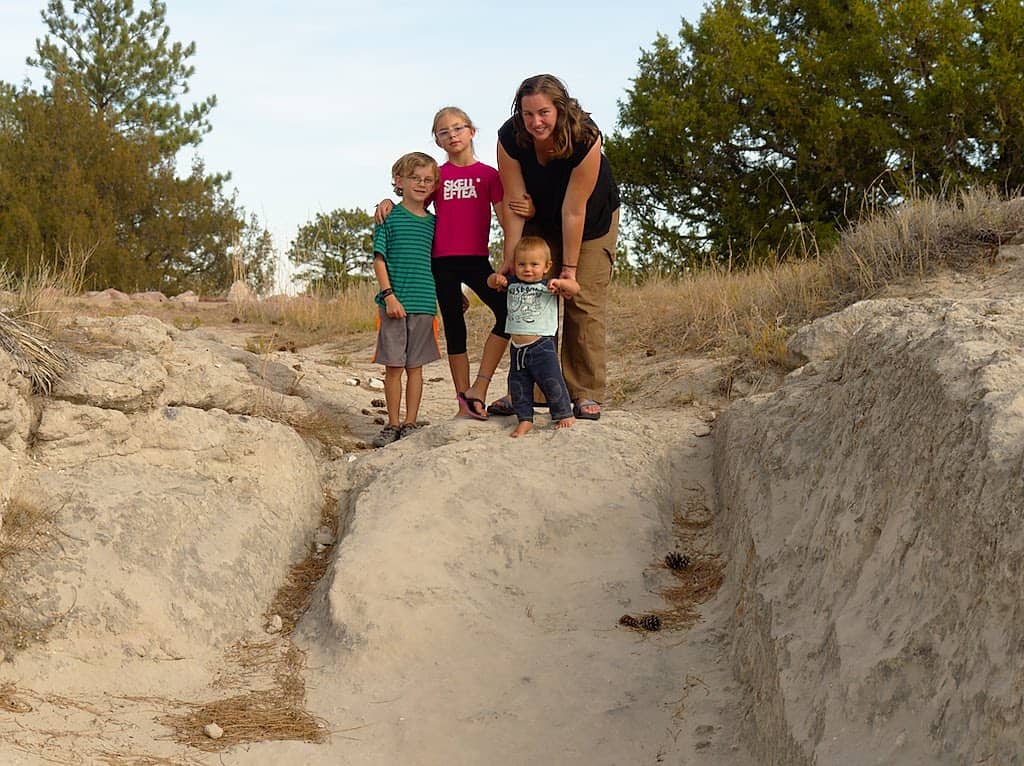
Covering All Subjects
For some school subjects, it’s easy to see how roadschooling works very well. Visiting historic sites is an excellent way to learn history. Hands-on science museums and outdoor nature exploration can form the basis for studying the sciences.
What about the other subjects?
There are many options. One strategy looks very similar to more traditional educational environments. Practicing math facts through workbooks and flashcards can be done anywhere.
Handwriting copywork, diagramming sentences, or anything else that kids might do in a classroom can also be done on the road. We have a printer in our RV, and sometimes downloading a worksheet is the simplest way to cover a new skill.
There are also plenty of opportunities to learn in our day-to-day environment, and we try to take advantage of them. Recipes are opportunities to learn some life skills and talk about fractions and measurement.
Kids can be involved in route planning, calculating how long it will take us to drive a certain distance, and where we should stop to rest along the way. Writing practice can happen through travel journals or sending letters to family and friends.
It might sound like all of this takes a lot of effort, and sometimes it does. Most often, though, we find that our kids take on these projects naturally. They are paying attention and looking for ways to process everything they learn and experience. Sometimes our task as parents is simply to make sure we’re available to support and encourage their natural curiosity.
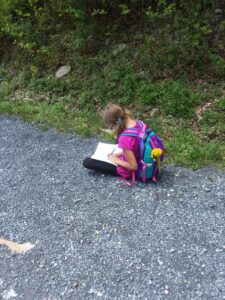
Supplemental Resources
If you know where to look for them, there are more resources available than any one family could ever take advantage of. These can form part of your curriculum plan, or supplement your plan if you come across areas of particular interest or challenge. Roadschooling parents should never feel like they need to be experts in everything or know how to design all their own curriculum in order to do this well. Here are some popular resources that many roadschooling families take advantage of:
- Junior Ranger Program. Every national park, historic site, recreation area, etc. has a Junior Ranger program for kids. These range from a single, photocopied page to full-color multi-page books, but they always include educational material to help kids explore the park they’re in and learn about the area. They often include history and science in the form of scavenger hunts, puzzles, games, and other activities. Kids who complete the requirements recite the Junior Ranger pledge and receive a badge. Sometimes state or county parks offer similar programs. Junior Ranger books have helped us all learn a lot, and have led us to some places we might never have discovered on our own.
Scouting. Traditional Scout troops don’t work well when you are always on the move, but there are still scouting options for full-time kids. The Boy Scouts of America (which also accepts girls these days!) has a Lone Scout program for kids who are unable to join a local troop. The Fulltime Families organization has an Explorers program designed specifically with traveling families in mind. - Online Learning. There are countless resources available online for pre-recorded video classes, or live-streamed instruction. Sometimes kids want to go deeper into a subject than the parents are able to teach. Other times, your child might get stuck on something and need someone to explain in a new or different way. Often a simple search on YouTube can solve the issue. Many families make good use of Khan Academy and Outschool. There are so many options that you are certain to find something that fits your family’s needs.

What about Socialization?
If you are already homeschooling, you might be shaking your head here. Homeschoolers get asked this question a lot. It seems to be a common understanding that the only way kids can learn social skills is to spend every day in a room full of kids their age. Much ink has been spilled on the subject of homeschoolers and socialization, and I don’t feel the need to add to that here.
What’s worth addressing is the added challenge of socialization when you’re constantly on the move. Joining a local homeschool co-op, participating in community sports or theatre, or making friends through church or service groups aren’t easy options.
Since those are the places most people are used to making friends, it’s easy to assume that this is a lonely lifestyle.
Nothing could be further from the truth!
We have formed deeper community since we have been on the road than we did in years of living in the same place. We have connected with other like-minded families and often spend at least part of the year traveling together or planning to meet up in new places at regular intervals. Our kids have friends and we as parents have friends. Good ones.
We have also met families who find this lifestyle lonely because they have not yet found their “tribe”. Finding a tribe is not automatic, but most roadschooling families who are enjoying this kind of relationships agree that there are two keys to finding them: Fulltime Families and Thousand Trails.
Fulltime Families (FTF) is an organization specifically for families who travel full-time. For an annual membership fee, families get access to discounts on common RVing needs as well as access to members-only social media groups and in-person rallies. We met many of our closest friends at an FTF rally, and we often connect with new families through various FTF social media groups.
Thousand Trails is a campground membership program that many families use because it helps make this lifestyle affordable (more on that in a minute). Staying in these campgrounds makes you much more likely to meet up with other families, whether hanging out in the pool or taking the kids to the playground. Potlucks and campfires are known for deepening relationships quickly. Roadschooling doesn’t have to be lonely!
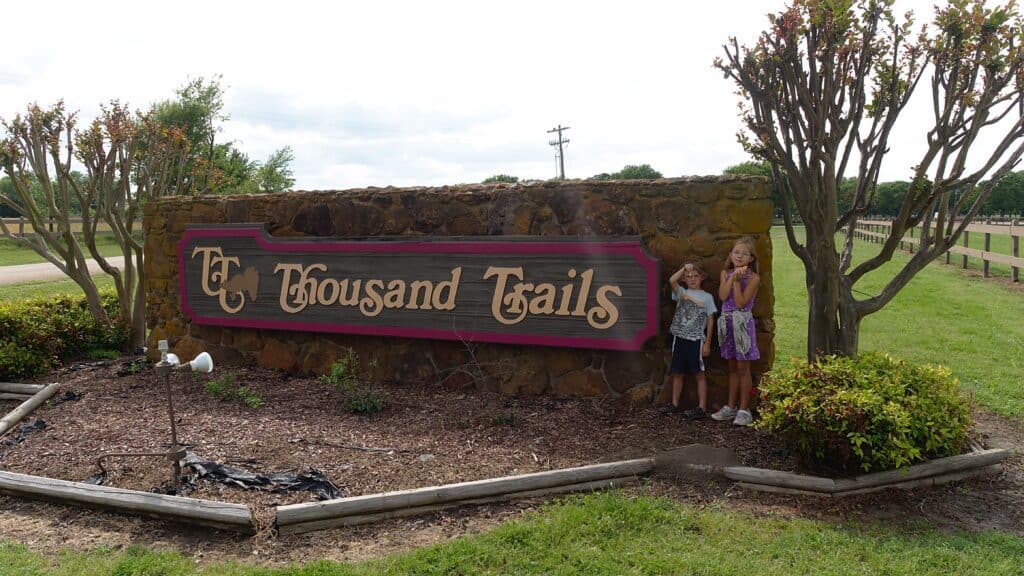
How to Afford Roadschooling
If I had a dollar for every person who has asked me this question… I wouldn’t have to worry about how to afford roadschooling.
As with any lifestyle, budgeting for roadschooling means balancing your income and expenses. The needed budget for full-time RVing is largely within your control. There is a tremendous amount of flexibility, so you can save money on things that aren’t important to you and spend more on what matters most.
Is Roadschooling Expensive?
It can be, but it doesn’t have to be. The key is to remember that we are not on vacation. When you travel for vacation, you often indulge in a lot of restaurant meals, afternoon ice cream treats, souvenirs, and other expenses. You want to see and do everything, so every day comes with fees for admission, parking, transportation. Meanwhile back at home, you’re still paying your rent or mortgage, utility bills, and other regular costs. Vacations can be really expensive.
Full-time RV living is a lifestyle and not a vacation. Your budget on the road has similar categories to sticks-and-bricks life:
- Housing. This includes your RV and your tow vehicle or towed vehicle. Loan payments on these vehicles can make up a significant part of your monthly budget. Your choice of rig influences these costs significantly. We chose a travel trailer and Suburban combo that we saved up to pay cash for in order to eliminate these payments from our budget. The insurance costs for a trailer are also much lower than for a motorhome, so this choice saves us money every month on our full-timer’s insurance
- Campgrounds and RV Parks. Once you have your house, you need somewhere to park it. Paying standard nightly rates at campgrounds and RV parks adds up fast. Many families choose to join Thousand Trails and use the member RV parks in order to cut costs. That also makes these parks a great place to meet other roadschooling families. There are other campground memberships that can help save money, such as Passport America or KOA’s Value Kard Rewards. Another option is dry camping, or “boondocking” as a way to save money and avoid crowds.
- Food. An RV kitchen feels small at first, but you get used to it. For the most part, we cook the same food in our RV that we cooked in our apartment. If you resist the vacation feeling and the temptation to eat out a lot, your food budget probably won’t change much.
- Utilities. Electricity and water will typically be included in your campground fees, with the exception of some campground policies regarding monthly sites (if you choose to stay that long in one place). You’ll need propane for your stove and oven, and possibly your refrigerator and water heater, although in most RVs these appliances can be run on electricity when you’re plugged in at a campground. Our heater runs on propane, but unless it’s really cold outside, we are usually fine with an electric space heater. Our only fixed monthly utility bills are for our cell phones and internet.
- Attractions and activities. When it comes to attractions, one way to keep costs down is to fight the FOMO and realize that you don’t have to see and do everything. That pace may be fun for a few weeks on vacation, but trying to live that way will lead to exhaustion. Give yourself permission to choose the things you most want to see and do and skip the rest. An annual National Park pass, and using reciprocal memberships for things like zoos and museums can give you lots of options for very little investment.
Making a Living on the Road
There is no “one size fits most” answer to making a living on the road. It seems every family we meet is solving the income question in a different way. The common threads are willingness to try something different and a lot of creativity.
Some families are able to keep the same jobs they had before launching, but transition to working remotely. Even if they weren’t already working from home, they found it was possible when they asked.
Others have transitioned to online, location-independent work such as online teaching, freelancing, or starting an independent consulting business. Still other families have travel-based work such as traveling nurses, insurance adjusters, RV technicians, and pilots.
The old adage, “Where there’s a will, there’s a way,” rings true in this case. It might not seem obvious at first, but chances are there’s a way to take your skills and qualifications and translate them into a mobile income.
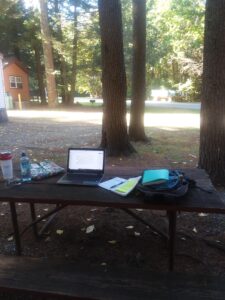
Advantages of Roadschooling
Roadschooling has so many advantages. This type of education helps kids maintain and increase their natural curiosity about the world around them. It regularly exposes kids to different people, environments, climates, landscapes, and time zones. Kids learn to adapt, adjust, and be flexible and creative in new situations. They build social skills with kids and adults of all ages.
Families have more time together. Family relationships are deeper thanks to shared experiences and what is often a simpler and slower pace of life. When families learn together, kids grow up assuming that learning never stops. Learning is everywhere and always, not just relegated to a certain location or time of day. Most roadschooled kids thrive in an environment that has less pressure to perform and conform. The world is their backyard, and they feel free to explore it.
Disadvantages of Roadschooling
Nothing is perfect, even roadschooling. There are some disadvantages to weigh when choosing if this lifestyle is for you. Some aspects of “normal life” need to be sacrificed in order to gain the advantages that roadschooling offers. It might not be the best choice for every family.
It is difficult or even impossible for kids to participate in activities such as organized sports, band or choir, and other group activities. Taking lessons in things like music or dance is also a challenge.
Sometimes these needs can be met within the roadschooling community. You may find other families that can give lessons in music or dance, or who will organize some sports coaching for all the kids in a campground. It isn’t quite the same as what they would experience playing in a community league or for a school team, though.
This was hard for us because our daughter is a dancer. After about a year on the road, we connected with someone who used to run an Irish dance studio, and she had developed a mobile Irish dance academy (talk about creative income solutions!) Our families became good friends, and when we travel together my daughter takes in-person dance lessons. The rest of the year she takes lessons via video chat. She can enter competitions wherever we are in the country, or participate in digital competitions online. Her dance career probably would have looked much different if we had not chosen roadschooling, but we are thrilled that she can continue to develop and explore her passion for dance wherever we travel.

Roadschooling is also a challenge for families who need specific medical care or therapies regularly. We know families who are making it work, but it requires cooperation from your medical team and therapists to make sure everyone’s needs are met.
Getting Started with Roadschooling
Do you think roadschooling might be right for your family? Here are some good first steps to explore further.
- Learn More about RVing. Check out some YouTube channels of full-time RVing families. Some that are really popular but also helpful and informative are Less Junk, More Journey, Project Trek, and Ditching Suburbia. (We’ve met these families in our travels and we know that they’re speaking from real experience.) You should also make sure you know about different types of RVs and research floor plans that might work well for your family.
- Hit the Road (Short-Term!) Don’t decide to make RVing your life until you’ve spent some time in an RV. Take a vacation or two and try to imagine what it would be like to live in the RV full-time. Consider renting some different types of RVs (such as a fifth wheel, Class A, Class C, or a travel trailer) to get a feel for what type might suit you best. You can find a good selection of RVs for rent through peer-to-peer sites such as Outdoorsy or RVShare.
- Transition to Homeschooling. If you’re not already homeschooling, it might be wise to make this transition before you launch. If you’re used to a traditional school setting, this can be a big adjustment for both kids and parents. That’s a lot to combine with the big transition into RV living, so if you have the opportunity, get a head-start on homeschooling. Remember to check the laws and regulations for your state.
- Figure out Finances. Work on a sample budget, and start working to make sure you can earn an income on the road. I also highly recommend setting a savings goal that will help you make some of the major initial purchases and have a buffer for the first few months on the road.
- Plan a Starting Route. Planning your route as you travel is a skill you’ll eventually need to develop, but it can be very overwhelming when you first start out. Choose a few destinations, work out a good route to get there, and find some campgrounds ahead of time. Don’t force yourself into lots of long driving days back-to-back, especially if you have younger kids. Break up long drives into shorter segments and give yourself plenty of time for rest days. If choosing where to go sounds overwhelming, start with where you plan to spend the winter months. Most RVers choose to go south in the winter to places like Florida, Texas, Arizona, or southern California. Decide where you want to be in the winter and plan a route that takes you in that direction.
- Set a Date… then JUMP! Make a plan for all the things you have to do… sell or rent your house, sell or store things you won’t take with you, buy your rig, etc. Give yourself a timeframe that seems reasonable, and then stick to it. You won’t feel ready. You’ll have a hundred excuses to push back your timeline. You won’t have every detail sorted out. Launch anyway. In most cases, you can sort out the rest as you go. If you don’t give yourself a deadline, chances are you’ll never do it.
Welcome to the wonderful world of roadschooling! Hope to meet you along the road!
